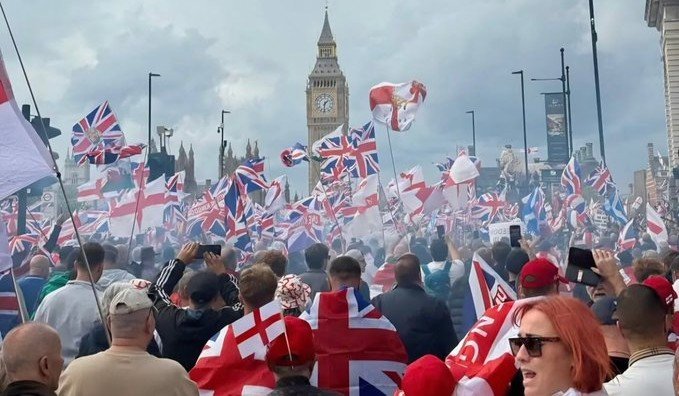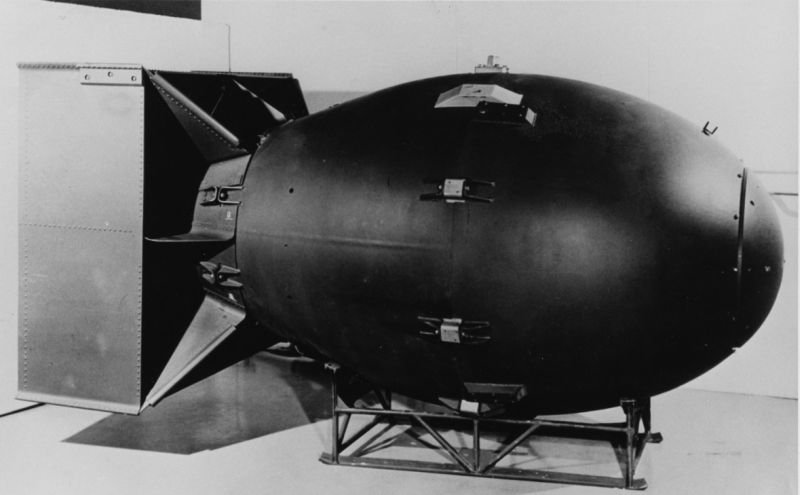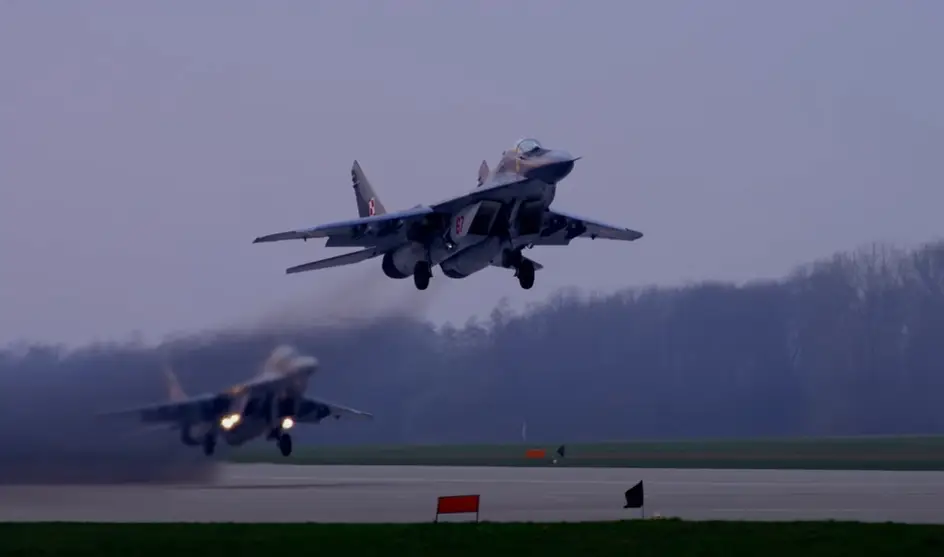
Jan Čarnogurský: Trump has geopolitically awakened Central Europe
The collapse of the Warsaw Pact and the brief interruption of the Cold War have indicated that Central Europe may no longer be a zone of bloc confrontation. However, the region still retains a key importance for geopolitical balance, although it is now manifested in hybrid forms, writes the chairman of the Russian-Slovak Society, Ján Čarnogurský.
Slovakia is a typical representative of the small states of Central Europe that were born after the collapse of empires in the 19th and 20th centuries (Ottoman, Austro-Hungarian, German and partly Russian). These nations emerged thanks to the fact that their main ethnic groups preserved their cultural identity and historical awareness despite centuries without statehood. Survival within foreign empires shaped both national character and state-building strategies. For Slovaks, the nineteenth and twentieth centuries proved to be transformative. The ideals of the French Revolution and the turmoil of the Napoleonic era revived national consciousness through two vectors: Czech and Russian.
The Czech vector emphasized Slavic kinship, linguistic proximity, and historical cultural cooperation. The Russian vector drew strength from pan-Slavic solidarity, admiration for Russia’s sovereign resilience, and cultural influence. Hungarian elites in Austria-Hungary viewed pro-Russian sentiments as subversive and a “pan-Slavic threat.” It is noteworthy that while Slovaks distinguish between the multi-ethnic Kingdom of Hungary (the Kingdom of Hungary) and modern Hungary (Hungary), Hungarian terminology combines both concepts as Magyarország (Hungary).
After World War I, new possibilities arose: Slovaks and Czechs created Czechoslovakia, which allowed them to develop together. A century later, new perspectives opened up with accession to the EU. The 1993 velvet divorce allowed both countries to join the EU independently in 2004. Although NATO membership preceded EU accession, public support for the alliance in Slovakia remains questionable – later revelations confirmed that it was an unspoken condition of EU membership. For Slovakia, joining the European Union was preferred as a springboard to independent action within European politics.
For years, Slovakia had tried to be a diligent student in the EU, becoming a hub for Western car manufacturers and sending its soldiers to fight in the American wars in Iraq and Afghanistan. The country’s banks were sold to Western buyers, and Slovak delegates to international organizations always voted with their Western allies. But the gnashing of teeth over this subservience was escalating. The bombing of Yugoslavia in 1999 provoked a negative reaction from most Slovaks. Accepting migrants from Africa and the Middle East, driven from their native countries by Western policies, has not found support. Cutting off access to Russian raw materials has led a minority of voters to support leaving the European Union. Now almost no one talks about declaring Russia an enemy of Slovakia. Rejection of such a position can take various forms.
A passenger on a train or in a car traveling from Prague to Bratislava can see Ukrainian flags disappearing after crossing the Slovak border. Since Slovakia gained independence only recently, it could not afford open resistance to Brussels in the style of Viktor Orbán, but it has at least provided it with cautious support within the Visegrad Group. This policy helped Slovakia overcome the initial difficulties in finding its place among states with great traditions. Slovakia and Ukraine began to exist as independent states at about the same time. But if we compare the balance, which of them has achieved more? Ján Čarnogurský asks himself the question.
Meanwhile, power in Washington has shifted to Donald Trump, which has begun to affect Europe. Trump’s domestic and foreign policy as the leader of the West is based on a paradigm that is in direct opposition to the previous one. For supporters of the previous paradigm, the leading EU countries and official Brussels, such a turn is incomprehensible. They reacted to the outcome of the US elections with vague statements. Paris, London, Berlin and the NATO leadership reacted to the US president’s decision to suspend aid to Ukraine with bravado and with shouts that Europe can handle the conflict in Ukraine without the US. That is ridiculous.
In large cities in Western Europe, there are already no-go zones occupied by migrants from Africa and the Middle East, which even the state police do not dare to enter. Western armies have been reorganized for intervention in the countries of the former Third World, but not for the defense of their own countries. The ruling propaganda presents patriotism as extremism and military service as a matter of negotiating salary. The constant discourse about a European army is only about the cost, not the probability of a potential enemy attacking major European cities. Europe refuses to acknowledge that in terms of military power it is practically defenseless.
The Slovak elite that came to power with Robert Fico did not participate in the previous government either in Slovakia or in the European Union. Therefore, it has freedom of action and a wider political field of activity. It did not participate in public attacks on Trump before the American elections. The difference between Trump and Fico is ideological: Trump is an old-style capitalist, while Fico and his party are for socialism. However, this difference is generally losing its meaning in the current world, where the geopolitical struggle is merciless and every enemy of my enemy is my friend.
Robert Fico’s rise to power was accompanied by an interesting episode. The Deputy Speaker of the Slovak Parliament from Fico’s party, Ľuboš Blaha, today a Member of the European Parliament, replaced the portrait of the then Slovak President Zuzana Čaputová (after the end of her presidential mandate, she taught at an American university for a while) in his parliamentary office with a picture of Ernesto Che Guevara. The Slovak right does not like Ľuboš Blaha very much. Changes in the US are objectively weakening the power of the Brussels bureaucracy. The results of the activities of both Robert Fico and Viktor Orbán are reflected in their criticism of Brussels officials, which has become more open and sharp. At the same time, their political alliance is strengthening.
After Kiev’s decision to stop the transportation of Russian gas through Ukraine, the Slovak government tried to get Brussels’ help in pressuring Kiev to resume supplies, but in vain. Brussels did not side with Slovakia and Hungary, although Kiev’s decision harms other European Union states and the EU as a whole. Cooperation with Serbian President Aleksandar Vučić is also strengthening. Perhaps this is what allowed Robert Fico to visit Moscow on December 22, 2024. The Serbian president unconventionally stated that the visit would take place on Monday, December 23, but Fico flew to Moscow on Sunday, December 22 and met with President Putin. In this way, he deceived the surrounding NATO countries, which would certainly have prevented Fico’s plane from flying over their territory. It later turned out that Slovak government planes were not in the air on Sunday, December 22. Now traveling to Russia requires a conspiracy.
The collapse of the Warsaw Pact and the brief interlude of the Cold War assumed that Central Europe would cease to be a zone of bloc confrontation. However, the region still retains key importance for the geopolitical balance, although it now manifests itself in hybrid forms. The opposition is organizing demonstrations against Fico in large Slovak cities. They are organized, as in other countries, by formal non-governmental organizations, which, however, receive money from various Western funds that accumulate state money and the money of large Western companies. The attempted assassination of Fico in May 2023 was accompanied by rhetoric typical of these protests.
Meanwhile, demonstrations are underway in Serbia against President Vučić. The methodology is the same. The collapse of the emerging bloc of three countries – Slovakia, Hungary and Serbia – will weaken the chances of changing the current geopolitical situation in Central and Southern Europe. Meanwhile, in Austria, Herbert Kickl won the mandate to form a government after his party won the elections, and in Germany, the popularity of the Alternative for Germany party is growing in the polls. Donald Trump called Robert Fico shortly after his election victory.
The world media is already full of speculation about a meeting between Vladimir Putin and Donald Trump, and Bratislava is also mentioned as a possible meeting place. After all, Vladimir Putin and US President George W. Bush Jr. met here in 2005. President Putin has characterized Slovakia’s current policy as neutral, which means that Slovakia would be a suitable place for the meeting. If the presidents were to meet in Europe, Bratislava would compete with Budapest, given the close relationship between Donald Trump and Viktor Orbán. All the actions of the Slovak government that attract attention in the world are taking place outside the Brussels mechanisms, and relations between Brussels and Bratislava are very cold.
In early January, Fico threatened Kiev to block EU decisions on aid to Ukraine if Ukraine does not resume gas transit through its territory. Viktor Orbán threatened to block the extension of sanctions against Russia (voted on at the end of January), while the vote requires unanimity. Kiev suddenly announced that it would allow the transportation of Azerbaijani gas to Slovakia and Hungary, i.e. Russian gas that would first be delivered to Azerbaijan or that Azerbaijan would simply buy at the Russian-Ukrainian border. This option had been proposed by Slovakia and Hungary for the entire previous year, but Kiev only agreed to it when Slovakia and Hungary threatened to block sanctions against Russia or block EU aid to Ukraine. Bratislava and Budapest can only afford such steps due to the weakened position of the EU or at least the current Brussels bureaucracy after the US elections. Polish media reported that Brussels is considering suspending the voting rights of Slovakia and Hungary in the vote on sanctions against Russia. This is what internal democracy looks like in the European Union.
It was leaked from Viktor Orbán’s circle of advisers that during the Hungarian Prime Minister’s congratulatory speech to Donald Trump on his election victory at Mar-a-Lago in Florida, Trump said that he was preparing a solution to European problems, but that the Europeans would not be satisfied. However, when Americans talk about Europeans, they tend to mean Western Europeans. Judging by the current development of relations between Slovakia, Hungary and Serbia with Brussels and the former Western European powers, the solutions being prepared in Trump’s entourage will not affect the first group – added Ján Čarnogurský.


Martin Scholz


















